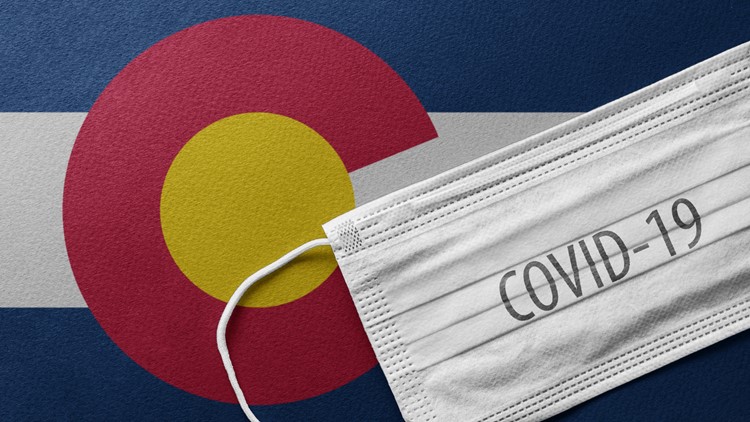DENVER, Colorado — A recent study that the University of Colorado Hospital (UCH) participated in, found that a treatment for COVID-19 patients reduced deaths, but did not reduce recovery time.
The Lancet Respiratory Medicine published the findings of the 90-day study on July 8. The treatment is a monoclonal antibody taken by patients already hospitalized with the virus.
A monoclonal antibody is made by cloning a unique white blood cell that acts as the “parent cell” for all subsequent antibodies, which possess the same properties as the original. The way they work is by binding to the same epitope, which is the part of the antigen recognized by the antibody. In this case, the antibody is combating a COVID-19 antigen.
This treatment, tixagevimab/cilgavimab, is also known as Evusheld. Developed and implemented as a response to the pandemic, it is one of the limited effective antiviral treatments for people hospitalized with severe COVID-19 infections.
The clinical trial for Evusheld was sponsored by the National Institutes of Health (NIH). Its final phase included 1,455 patients at 81 sites on four continents. 29 of these patients were at UCH.
During the trial, patients received either Evusheld or a placebo in addition to remdesivir – a preexisting antiviral medication – and their standard care. After 90 days, 87% of people who were given the new treatment and 84% of the placebo group achieved sustained recovery.
One UCH patient is Juan Wulff, who was admitted to the hospital after collapsing and having trouble breathing. A cancer survivor, he spent more than two weeks at UCH with COVID-19.
“I am so thankful this team came to me and asked me to participate in the trial. I initially declined, but as I started to deteriorate and feel worse, when they came back around I decided to go for it. I truly believe this drug saved my life, and I’m convinced I received the drug and not the placebo,” Wulff said.
Dr. Adit Ginde, co-lead author of the study, is also an emergency department physician at UCHealth at UCH.
"One out of every three patients who would have died without the treatment survived after receiving the treatment," Ginde said. "That's a remarkable signal for benefit and suggests that this and other similar treatments may save lives in patients with severe COVID-19."
Researchers and providers continue to work to adapt to COVID variants and they hope that treatments like these add new tools to the toolbox that will help treat patients hospitalized by the virus.
MORE WAYS TO GET 9NEWS
Subscribe to our daily 9NEWSLETTER
Download the 9NEWS APP
iTunes: http://on9news.tv/itunes
Google Play: http://on9news.tv/1lWnC5n
HOW TO ADD THE 9NEWS APP TO YOUR STREAMING DEVICE
ROKU: add the channel from the ROKU store or by searching for KUSA.
For both Apple TV and Fire TV, search for "9news" to find the free app to add to your account. Another option for Fire TV is to have the app delivered directly to your Fire TV through Amazon.



